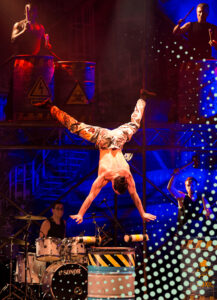Rhythm games in esports
Who hasn't held their breath as notes fly across the screen and their fingers struggle to keep up with the rhythm? Rhythm games, where players battle against the relentless pace of the machine, have captivated millions. It's not just entertainment — it's a challenge, a test of reflexes and character. Why do people spend hours honing their clicks without regard for fatigue? It seems to be about the freedom that comes with playing against an algorithm.
A dance of fingers and rhythm
Rhythm games such as osu! or Beat Saber, which you can find via v7v7 login, are an arena where humans challenge machines. Notes fly by like sparks in the night, and the player must catch every one. Surprisingly, there is no room for doubt in these games. Hesitate and you lose. According to the osu! community, by 2025 the game had attracted over 20 million players, many of whom spend hours perfecting their accuracy. It's not just a game, it's almost meditation: the rhythm dictates, and the body obeys.
Each map is a new challenge where the algorithm does not forgive mistakes. Players say that in such moments, you forget about the world. There is no work, no worries — only music and movement. It is noteworthy that fans create maps themselves, adding endless variety to the game. Isn't it cool when the community itself supports the life of the project?
Why is it so addictive?
What makes rhythm games so appealing? Perhaps it's their energy. When the notes fly to your favourite melody and the screen flashes with precise clicks, you get a feeling of flying. The player doesn't just press buttons — they become part of the music. Some compare it to dancing, where your fingers work instead of your feet. However, it's not just about emotions. The machine is relentless: if you miss, you have to start over. This teaches patience and perseverance.
Incidentally, rhythm games often become an arena for competition. Osu! tournaments attract thousands of spectators, and the best players can make up to 600 clicks per minute. Try not to lose your rhythm at that speed! This is not just a game, but a test of strength. Players train for years to reach the top, and yet the machine remains an impartial judge.
The hidden philosophy of freedom
Rhythm games are not just about reflexes. They teach you to act without looking back. In everyday life, people often hesitate, afraid of making mistakes. But in the game, there is no time for reflection. It seems that it is this freedom from doubt that is so appealing. The player does not think about the consequences — they just act. And when the map is completed and the screen lights up with the word "Perfect," it is like a reward for courage.
It is interesting that rhythm games resonate with different people. Teenagers hone their skills, adults relieve stress, and some even use them as reaction training. For example, professional e-sports players sometimes play osu! to improve their coordination. It's no surprise that such games have become part of a culture where man and machine engage in equal combat.
Rhythm games are not just entertainment, but a way to test yourself. They remind us that even in a world where algorithms dictate the rules, humans are capable of going beyond them. Victory over the machine is not only about accuracy, but also about spirit. A player who returns to a difficult map time and time again proves that perseverance is stronger than code. And perhaps that is where their magic lies — in the chance to feel more alive than a perfect machine.
AGENDA











